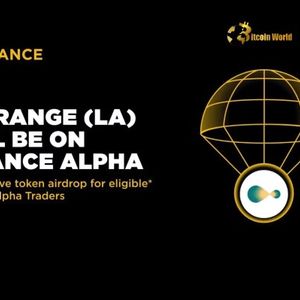Disclosure: The views and opinions expressed here belong solely to the author and do not represent the views and opinions of crypto.news’ editorial. Southeast Asia’s digital economy is booming—but so is its illicit underground. Findings from a recent UN report estimate that scam networks across East and Southeast Asia now generate nearly $40 billion annually. These criminal syndicates exploit weak infrastructure, regulatory fragmentation, and gaps in digital verification, scaling faster than law enforcement can keep up. You might also like: Verifiable credentials: The antidote to AI-driven scams | Opinion However, the challenge isn’t just economic loss; it’s about the erosion of trust in digital systems. As digital replicas become indistinguishable from reality and AI-generated content further blurs the line between authentic and artificial, existing systems are ill-equipped to anchor verification in increasingly fluid digital spaces. No longer just confined to a region, this crisis now transcends Southeast Asia and into Africa, Latin America, and beyond, exploiting an inherent fragility of incumbent infrastructure built on passwords, static identifiers, and centralized verification. The rapid adoption of digital technologies has outpaced the development of secure and verifiable systems, leading to an environment where trust is continuously eroded. To counter this, future-proofing the architecture of digital trust is more critical than ever to rebuild legitimacy and reclaim confidence in the digital space. The dissolving boundaries of digital trust As our existence increasingly straddles physical and digital realms, more than 70% of consumers in Asia-Pacific are now concerned about privacy and data sharing. The rise of cybercrime targeting vulnerable populations has created a new form of disenfranchisement: those without secure identity systems become prey in the digital realm that privileges the technologically sophisticated. Malaysia alone lost a staggering $12.8 billion to scams in 2024, equivalent to 3% of the nation’s GDP. These losses demonstrate that secure digital identity verification isn’t just a convenience; it has become an essential economic infrastructure that protects citizens from exploitation. Yet as digital adoption rises, public trust continues to decline, eroding system legitimacy and putting long-term adoption at risk. The lack of a coordinated, verifiable “trust layer” across economies is more than just a technical shortcoming, and it’s become a systemic vulnerability. Governments and institutions must prioritize building interoperable systems that can ensure identity authenticity and transactional integrity. Without a robust digital trust framework, progress in the digital economy will remain vulnerable to exploitation. The sovereignty paradox in borderless spaces While the internet was conceived as a borderless commons, the proliferation of digital crime forces us to reconsider the role of sovereign boundaries in cyberspace. National digital infrastructure initiatives like the Malaysia MyDigital ID SuperApp, powered by Zetrix, a public permissioned layer-1 blockchain, provide a compelling middle path: one that respects sovereign authority while establishing protocols for cross-border verification. The collaboration between Malaysia’s blockchain infrastructure and China’s Xinghuo BIF through Zetrix demonstrates how nations can maintain digital sovereignty while creating interoperable systems that facilitate cross-border communication. Malaysia’s leadership in launching the Malaysia Blockchain Infrastructure (MBI) , a state-backed initiative that supports interoperability across Ethereum ( ETH ) and enterprise systems, exemplifies a new paradigm where digital infrastructure not only protects national interests but also fosters regional connectivity. This model of sovereign interoperability provides a template for addressing borderless crime while respecting national digital autonomy. Moreover, this approach elevates blockchain from a financial tool to a core component of sovereign digital infrastructure, aligning it with long-term national strategies to secure economic and social stability. Rebuilding digital legitimacy: Prioritizing interoperability beyond decentralization The Malaysia Blockchain Infrastructure represents a hybrid model merging democratic access with sovereign assurance. This third path demonstrates how sovereign backing can provide an essential trust layer, while blockchain technology delivers the verification systems needed to support it. It acknowledges that while purely private blockchain solutions lack sufficient authority for mass adoption, completely centralized systems sacrifice the transparency and resilience that make blockchain valuable. As Malaysia assumes the ASEAN Chairmanship in 2025, it has a unique opportunity to elevate digital trust as a regional priority. Through discussions and forums, Malaysia can position blockchain not as hype, but as a foundational layer for ASEAN’s digital economy ambitions. Establishing sovereign blockchain as common ground The digital future of Southeast Asia hinges not on how fast the region innovates, but on whether it can build systems that people trust. Fragmented infrastructure, regulatory gaps, and rising cybercrime require a nimble solution that coalesces piecemeal innovation into coordinated, sovereign-backed digital infrastructure. Blockchain, when deployed at a national level with public interest in mind, offers a pathway to rebuild legitimacy in the digital age. It moves beyond financial speculation and into the realm of essential public infrastructure, which becomes a tool for economic resilience, societal stability, and digital trust. Read more: Redefining trust and ownership in the creator economy | Opinion Author: Dato’ Fadzli Shah Dato’ Fadzli Shah is the co-founder of Zetrix and a passionate advocate for blockchain with extensive experience in tech, startup, venture capital, and national development sectors. His remarkable career includes key roles such as Chief Strategy Officer for the Malaysia Digital Economy (MDEC) and early investor in South East Asia’s most prominent fintech and crypto startups. He has graduated from three prestigious universities, namely the University College of London, London Business School, and Harvard University.















